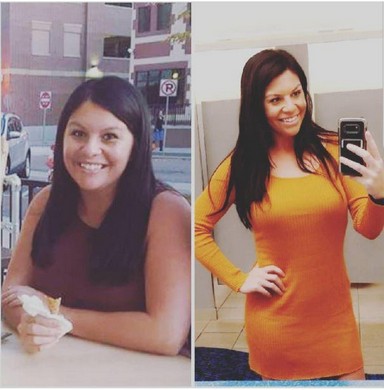DIET FOR SMOKERS AND EX-SMOKERS
Our Advices on this matter
Can a diet compensate for health damage caused by smoking? What foods should you eat if you smoke?
When you quit, what type of diet is best to prevent weight gain?
Some experienced dietitians and nutritional consultants have explained the issues and gave practical eating advice.
To some dietitians, the three most common questions which smokers ask them about diet and smoking, are:
(1) Can a diet compensate for health damage caused by smoking?
(2) What should I eat if I smoke?
(3) If I quit, what type of diet is best to prevent weight gain?
CAN A DIET COMPENSATE FOR SMOKING?
No diet or eating-plan, no matter how nutritious, can neutralise the health damage caused by the 850+ chemicals in tobacco smoke - many of which are carcinogenic.
On average, if you smoke 20 cigarettes a day, you double your risk of a heart-attack and are five times more likely to suffer a stroke than a non-smoker.
At 40 cigarettes a day, you are five times more likely to suffer from sudden cardiac death.
Smoking is also the leading cause of lung cancer.
Thus before we even start to examine an appropriate type of diet for smokers, our overriding advice is: quit smoking today!
WHAT SHOULD I EAT IF I SMOKE?
For anyone who smokes, daily diet nutrition is critical. The damage done to the body's cardiovascular and respiratory functions requires a constant need for extra nutrients. Even if you smoke 5 cigarettes a day, you have increased nutritional needs due to your increased risk of hypertension, atherosclerosis, emphysema and numerous cancers.
As stated, a healthy diet will not prevent these health conditions, but it may delay their development.
INCREASED NEED FOR ANTIOXIDANTS
Tobacco smoke leads to increased levels of free radicals - cancer-causing agents - in the body and a corresponding need for protective antioxidants that can neutralise them. The main antioxidant vitamins are vitamin C and vitamin E (which works best in combination with the mineral selenium). Phytochemicals such as bioflavonoids and carotenoids (eg. beta-carotene) are also rich in antioxidants.
HOW TO INCREASE YOUR ANTIOXIDANT INTAKE
Use the following suggestions are a guide to minimum dietary requirements.
- Eat 3-5 daily servings of deep green, dark red, orange of yellow vegetables.
- Eat 3-5 daily servings of red, yellow, orange or green fruits.
- Switch from coffee to tea, ideally green tea.
- Each day, take 2 tsp of wheatgerm oil (rich in vitamin E) and 6 Brazil nuts (selenium).
Note: a serving is approx 1 medium fruit, or 1/2 cup chopped
SPECIAL NEED FOR INCREASED VITAMIN C
One cigarette is estimated to rob the body of 25mg of vitamin C.
Thus all smokers have a greatly increased need for this antioxidant-rich vitamin simply to maintain minimum levels. In practice, this need can only be met by taking supplements.
As a general guide, we suggest you take 1 gram of vitamin C supplements per day.
Choose a "timed-release" brand that includes a minimum of 100mg bioflavonoids.
BEST DIETARY SOURCES OF VITAMIN C
Fruits, such as: blackcurrants, papaya, guava, cantaloupe, elderberries, kiwi fruit, mango, oranges, strawberries.
Fruit Juices, such as: cranberry, grapefruit, lemon, orange.
Vegetables, such as: red peppers, green peppers, broccoli, Brussels sprouts, cauliflower, kale, tomatoes.
PROTECTIVE CAROTENOIDS
Carotenoids are pigments found in plants. All carotenoids are antioxidants, the most common example being beta-carotene. It is found in green plants (eg. spinach), as well as orange and yellow plants, such as carrots, sweet potato and melons. Clinical trials indicate that when consumed in foods - not supplements - betacarotene reduces certain precancerous symptoms.
Warning: for reasons which are still unclear, beta-carotene supplements actually increase the risk of disease (eg. lung cancer). Thus your intake of beta-carotene should come exclusively from food.
HOW TO INCREASE YOUR INTAKE OF CAROTENOIDS
Use the following suggestions are a guide to minimum dietary requirements.
Eat 4 daily servings of deep green, yellow or red vegetables, including: carrots, sweetcorn, pumpkin, spinach, sweet potato.
Eat 4oz tomatoes daily, either in sauce or chopped.
Eat 3 daily servings of colored fruit, including: melon, oranges, strawberries, mango, cherries.
PROTECTIVE BRASSICAS
According to research evidence, cigarette smokers who eat more brassicas have less incidence of cancers (eg. breast, colorectal, lung, pancreatic, prostate and stomach). As all these cancers are initiated by free radicals, it follows that brassicas may help to prevent other problems initiated by free radical damage and accelerated by smoking, such as: cataracts, emphysema, asthma and age spots.
Brassicas include: broccoli, Brussels sprouts, cabbage (all types), cauliflower, cress, horseradish, kale, kohlrabi, mustard, radish, swede, turnip, watercress.
GARLIC AND ONIONS
Garlic is a good source of unique antioxidants and contains anti-bacterial and anti-viral properties.
Its anti-tumor properties are well documented. Onions, a member of the same vegetable family, have similar properties to garlic.
CAN YOU PREVENT WEIGHT GAIN AFTER YOU QUIT?
Yes, if you take proper physical exercise and eat a healthy calorie-controlled diet, you are unlikely to gain weight.
However, in our experience on this matter, some weight gain seems to be inevitable.
WHAT IS THE AVERAGE WEIGHT GAIN?
Most smokers gain weight immediately after they quit.
Current evidence suggests that the average weight gain for both men and women who quit smoking is about 6-8 pounds.
The more you smoke, the higher the risk of weight gain when you quit.
This weight gain is due to the decrease in metabolic rate and an increase in appetite experienced when you quit smoking.
This weight increase is perfectly normal, and need only be a short term event.
SO WHAT SHOULD I EAT?
There is no single diet which will prevent weight gain once you quit smoking. Your best option is to focus on healthy eating combined with regular vigorous exercise (within your fitness capacity) and let Nature do the rest.
As a general guide, follow these suggestions.
First, cut down on caffeine. Nicotine withdrawal makes us jittery and nervous. So it's important to avoid coffee and caffeine-rich soft drinks which may increase this nervous tension.
Second, increase your intake of fresh fruit and vegetables. Studies show that an increased intake of fruit and vegetables can help to minimize weight gain after you quit smoking.
Eat them for snacks, add them to meals, eat them as starters and/or desserts. Eat them on car journeys instead of sweets or candy.
Third, eat little and often. Avoid the temptation to linger over your meals. Get into the habit of eating smaller meals at more regular intervals. Aim to eat something, no matter how small, every 2-3 hours.
This helps to maintain a regular rate of calorie-burning.
Fourth, take steps to learn more about nutrition and choose nutrient-dense foods whenever possible. (See above for information about antioxidants, and healthy fats, carbs and protein.)
Also, make sure you get enough sleep.
Research evidence shows that lack of sleep may lead to weight gain, as well as an increased craving for cigarettes and food.
MORE DIETARY TIPS FOR SMOKERS
Reduce the total fat in your diet.
At the same time, minimize your intake of saturated fat and trans-fatty acids. Eat regular servings of omega-3-rich oily fish (eg. salmon, mackerel, sardines).
Eat healthy carbohydrates. Avoid refined white flour carbs, choose only whole grains such as, oats, brown rice, wholewheat pasta.
In addition, choose foods rich in soluble fiber (eg. apples, oat bran).
Eat healthy low-fat protein such as fish, lean chicken/turkey, or egg-whites.
Include small amounts of lean red meat in your diet, along with regular servings of soy foods (eg. soybeans) and other vegetable protein.
Reduce sodium in your daily diet. Check food labels and choose low-sodium or sodium-free foods. Also avoid adding salt when cooking or eating.
TAKE REGULAR CARDIO-AEROBIC EXERCISE
No cigarette smokers diet-plan is complete without regular physical exercise.
Working within your fitness capacity, gradually increase the intensity and duration of your workouts to about 30-45 minutes a day, on most days.
For best effects on lung capacity and cardiovascular function, choose aerobic exercise such as: brisk walking, jogging, jumping rope, swimming and most sports.
HEALTH CARE DEPARTMENT CALIFORNIA HINTS:
Boost Energy. Build IMMUNITY. Lose Weight. Reduce BLOATING. Sleep BETTER.
THE BEST NATURAL DETOX TODAY ON THE MARKET.
BUY AT THE BEST DISCOUNT PRICE !
* ONLY BY US HERE.

Article Comments Section
0
reviews
*This Web Portal does Not Allow Spam.
Spamming Comments will be Eliminated Without Any Advise.
Spamming Comments will be Eliminated Without Any Advise.















